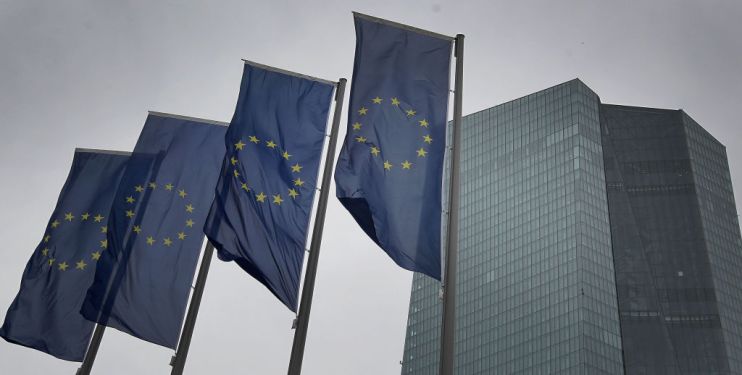ECB’s rate hikes bring down inflation, but growth falls as bloc faces recession

The European Central Bank’s (ECB) interest rates hikes have helped to bring down inflation across the bloc, but the costs are becoming clear as growth contracted in the third quarter.
Eurostat figures showed that GDP fell by 0.1 per cent between July and September. Economists had expected the bloc to stagnate in the third quarter after growing 0.4 per cent in the second quarter.
The figures demonstrate that the ECB’s historic spell of monetary tightening is bringing growth across the bloc to a standstill.
Last week, the ECB brought its run of 10 consecutive rate hikes to an end, partly due to concerns over slowing growth. In a press conference following the decision, Christine Lagarde, president of the ECB, said “the economy is likely to remain weak for the remainder of this year.”
Jack Allen-Reynolds, deputy chief eurozone economist at Capital Economics, said “the big picture is that the eurozone is struggling.”
He pointed out that it has grown just 0.1 per cent over the past year, with business surveys pointing to further falls in activity over the coming months.
“Whether or not the eurozone suffers a technical recession, we expect the economy to remain sluggish in the fourth quarter and beyond,” he said.
Although the ECB’s rate hikes have slowed economic activity, figures released today showed that inflation is falling faster than economists had expected.
Annual inflation fell to 2.9 per cent from 4.3 per cent last month. Economists had expected a smaller fall to 3.1 per cent.
Energy prices were more than 11 per cent lower than last year, helping to offset stubborn inflation across food and services.
Mathieu Savary, chief european strategist at BCA Research, said “The deceleration is strong and supported by various factors such as advantageous base effects, slowing wages, muted inflationary pressures and tame inflation expectations for next year.”
Core inflation, which strips out volatile components like food and energy, also dropped to 4.2 per cent. This was in line with expectations.
The easing in core inflation was “encouragingly broad-based”, Tomas Dvorak, senior economist at Oxford Economics said, but he noted services prices remain “visibly stickier”.